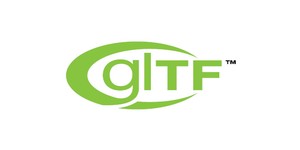
In keeping with the old adage 'standards are great and everyone should have one of their very own,' the Khronos Group has announced the OpenXR Working Group, an effort to promote a royalty-free standard for augmented and virtual reality (AR and VR) software and hardware.
Previously known as the Khronos VR Initiative, OpenXR gets off to a strong start by boasting an impressive array of member companies including chip designers AMD, ARM, Nvidia, and Intel, game engine makers Epic Games and Unity, advertising giant Google, and the Interactive Entertainment arm of Sony responsible for the PlayStation VR. Interestingly, though, while Oculus VR is present in the list of founding members, its rival HTC is nowhere to be seen despite having worked closely with Valve, which is listed, for the software ecosystem to support the HTC Vive headset.
'VR and AR have experienced a boom of interest recently, and with that, a flood of hardware and software companies have begun spinning up efforts in the field. While variety is great, the growing number of devices, each with their own incompatible APIs is increasing fragmentation,' the working group explained in a blog post announcing its launch. 'API fragmentation results in application developers having to spend significant time, money, and resources integrating with a variety of hardware. Even large teams are forced to choose which platforms and devices they support, and the problem is even worse for small teams.
'On the hardware side, companies have to convince both application developers, as well as game engine providers, to support their new devices. This presents a ‘chicken and an egg’ problem: software developers are often reluctant to support hardware that does not have a large footprint in the market, while getting to this large footprint depends on getting quality content and developers tool that are compatible with this hardware. Beyond developers, API fragmentation poses a problem for consumers who need to check if their favourite hardware is compatible with the applications they wish to use, and are unsure whether today’s software will be compatible with tomorrow’s hardware.'
OpenXR, the group claims, will change all that - rather than, say, adding yet another competing standard to the Tower of Babel it seeks to resolve. To do so, the group proposes a two-layer solution: an application interface which games developers write to and a device layer which hardware reads from. If a developer creates a new engine and has it write to the OpenXR application interface, the concept goes, it will be immediately compatible with all OpenXR-certified hardware devices; if a hardware manufacturer launches a new headset, they need only have it communicate with the OpenXR device layer and it will be supported by all OpenXR-certified software.
The Khronos Group has targeted a 2018 launch date for the first OpenXR certified devices, with more information available from the official website.
Previously known as the Khronos VR Initiative, OpenXR gets off to a strong start by boasting an impressive array of member companies including chip designers AMD, ARM, Nvidia, and Intel, game engine makers Epic Games and Unity, advertising giant Google, and the Interactive Entertainment arm of Sony responsible for the PlayStation VR. Interestingly, though, while Oculus VR is present in the list of founding members, its rival HTC is nowhere to be seen despite having worked closely with Valve, which is listed, for the software ecosystem to support the HTC Vive headset.
'VR and AR have experienced a boom of interest recently, and with that, a flood of hardware and software companies have begun spinning up efforts in the field. While variety is great, the growing number of devices, each with their own incompatible APIs is increasing fragmentation,' the working group explained in a blog post announcing its launch. 'API fragmentation results in application developers having to spend significant time, money, and resources integrating with a variety of hardware. Even large teams are forced to choose which platforms and devices they support, and the problem is even worse for small teams.
'On the hardware side, companies have to convince both application developers, as well as game engine providers, to support their new devices. This presents a ‘chicken and an egg’ problem: software developers are often reluctant to support hardware that does not have a large footprint in the market, while getting to this large footprint depends on getting quality content and developers tool that are compatible with this hardware. Beyond developers, API fragmentation poses a problem for consumers who need to check if their favourite hardware is compatible with the applications they wish to use, and are unsure whether today’s software will be compatible with tomorrow’s hardware.'
OpenXR, the group claims, will change all that - rather than, say, adding yet another competing standard to the Tower of Babel it seeks to resolve. To do so, the group proposes a two-layer solution: an application interface which games developers write to and a device layer which hardware reads from. If a developer creates a new engine and has it write to the OpenXR application interface, the concept goes, it will be immediately compatible with all OpenXR-certified hardware devices; if a hardware manufacturer launches a new headset, they need only have it communicate with the OpenXR device layer and it will be supported by all OpenXR-certified software.
The Khronos Group has targeted a 2018 launch date for the first OpenXR certified devices, with more information available from the official website.

MSI MPG Velox 100R Chassis Review
October 14 2021 | 15:04








Want to comment? Please log in.